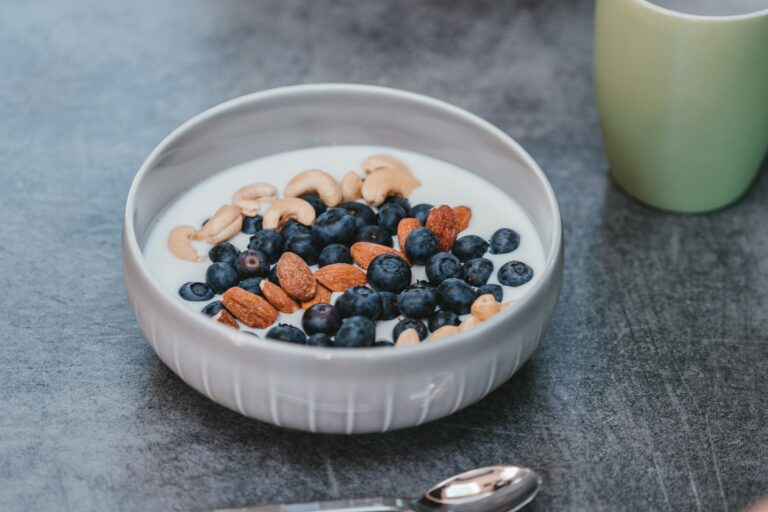The Benefits of Green Tea for Weight Management

Table of Contents:
Green tea has gained widespread popularity for its potential benefits in weight management. As more people seek natural ways to support their weight loss goals, green tea has emerged as a promising option. In this article, we’ll delve into the science behind green tea’s impact on weight management and explore how it can be incorporated into a healthy lifestyle. So, let’s unlock the benefits of green tea and discover how it can help you achieve your weight loss goals effectively.
What is Green Tea?
Green tea, originating from China thousands of years ago, is made from the leaves of the Camellia sinensis plant. Unlike black tea, green tea undergoes minimal processing, preserving its natural compounds.
Types and Production Process
There are various types of green tea, including matcha, sencha, and genmaicha, each with its unique flavor and characteristics. To produce green tea, freshly harvested leaves are quickly steamed or pan-fired to prevent oxidation, preserving their vibrant green color and fresh taste.
Nutritional Profile
Green tea is rich in antioxidants called polyphenols, particularly catechins like epigallocatechin gallate (EGCG), which contribute to its health benefits. Additionally, green tea contains caffeine, albeit in lower amounts than coffee, providing a mild stimulant effect. Alongside these, green tea contains vitamins, minerals, and other beneficial compounds, making it a nutritious beverage choice.
Understanding the origins, production process, and nutritional content of green tea sets the stage for exploring its potential role in weight management. Let’s delve deeper into how green tea’s components contribute to its weight loss benefits.
Mechanisms of Action
Green tea’s efficacy in weight management can be attributed to its unique composition, particularly its catechin and caffeine content.
Catechins and Fat Oxidation
Catechins, notably epigallocatechin gallate (EGCG), are potent antioxidants found abundantly in green tea. Studies suggest that EGCG may enhance fat oxidation, the process by which fat molecules are broken down and used as energy. This can potentially increase calorie expenditure, aiding in weight loss efforts.
Caffeine and Metabolism
Green tea also contains caffeine, albeit in lower amounts compared to coffee. Caffeine is a well-known stimulant that can boost metabolism and increase energy expenditure. By stimulating the central nervous system, caffeine can enhance thermogenesis, the body’s process of producing heat and burning calories.
Appetite Regulation
Additionally, green tea may influence appetite and calorie intake regulation. Some research suggests that compounds in green tea, particularly catechins, may have an appetite-suppressing effect, leading to reduced calorie consumption. This, coupled with its potential to increase metabolism, can contribute to weight loss over time.
Understanding these mechanisms sheds light on how green tea may support weight management efforts. However, it’s essential to note that while green tea can be a helpful addition to a healthy lifestyle, it’s not a magic bullet for weight loss. Let’s explore practical ways to incorporate green tea into your daily routine to reap its benefits.
Scientific Evidence
Numerous studies have investigated the potential weight management benefits of green tea, with varying results. While some research suggests positive effects, it’s essential to examine the evidence critically.

Key Studies
Several randomized controlled trials have explored the impact of green tea consumption on weight loss and body composition. For example, a study published in the American Journal of Clinical Nutrition found that green tea catechins combined with caffeine significantly increased energy expenditure and fat oxidation compared to a placebo, suggesting a potential role in weight management.
Strengths
Some studies demonstrate promising outcomes, indicating that green tea may enhance metabolism, fat burning, and overall calorie expenditure. Additionally, green tea’s antioxidant properties may offer other health benefits beyond weight loss.
Limitations
Despite promising findings, the evidence is not entirely conclusive. Many studies have small sample sizes or short durations, limiting their generalizability. Furthermore, results can vary based on factors like dosage, participant characteristics, and study design.
While scientific research provides valuable insights, more high-quality studies are needed to confirm the specific effects of green tea on weight management conclusively. In the meantime, incorporating green tea into a balanced diet and active lifestyle may offer additional health benefits and support overall well-being.
Green Tea and Metabolic Health
Green tea consumption has been associated with potential benefits for metabolic health, offering support beyond weight management alone.
Blood Sugar Regulation
Some research suggests that green tea may help regulate blood sugar levels by improving insulin sensitivity and reducing insulin resistance. This effect is particularly relevant for individuals at risk of type 2 diabetes or those seeking to manage their blood sugar levels.
Insulin Sensitivity
Green tea’s bioactive compounds, such as catechins and polyphenols, have been shown to enhance insulin sensitivity, allowing cells to more effectively respond to insulin and regulate glucose uptake. Improved insulin sensitivity can contribute to better blood sugar control and may reduce the risk of metabolic disorders.
While further research is needed to fully understand the mechanisms involved and the extent of green tea’s impact on metabolic health, incorporating green tea into a balanced diet may offer potential benefits for overall well-being. As part of a healthy lifestyle, green tea can complement other dietary and lifestyle strategies aimed at optimizing metabolic function and promoting long-term health.
Tips for Incorporating Green Tea into Your Routine
Incorporating green tea into your daily routine is easy and can be a delightful addition to your lifestyle.
Brewing Methods
Experiment with different brewing methods to find what suits your taste best. You can steep green tea leaves in hot water for a few minutes, or opt for green tea bags for convenience. Avoid boiling water, as it can make the tea bitter.
Optimal Timing
Enjoy green tea throughout the day, but consider limiting caffeine intake in the afternoon and evening to avoid interference with sleep. Start your day with a refreshing cup of green tea, or sip on it mid-morning for a gentle energy boost.
Incorporating into Recipes
Get creative with incorporating green tea into recipes. Add brewed green tea as a liquid base for smoothies, or infuse it into salad dressings for a subtle flavor enhancement. You can also use matcha powder in baking recipes for a vibrant color and antioxidant boost.
Meal Pairings
Pair green tea with meals that complement its flavor profile. It pairs well with light, refreshing dishes like salads, seafood, and sushi. Consider enjoying a cup of green tea alongside your meals to enhance the dining experience and support digestion.
By integrating green tea into your daily rituals and culinary creations, you can unlock its benefits for weight management while indulging in its soothing aroma and delightful taste.
Potential Considerations and Side Effects
While green tea offers numerous health benefits, it’s essential to be mindful of potential considerations and side effects associated with its consumption.
Caffeine Sensitivity
Green tea contains caffeine, which can cause issues for individuals sensitive to stimulants. If you’re prone to caffeine jitters or insomnia, consider opting for decaffeinated green tea or limiting your intake.
Medication Interactions
Green tea may interact with certain medications, including blood thinners and medications for high blood pressure or heart conditions. Consult with your healthcare provider if you’re taking prescription medications to ensure that green tea consumption is safe for you.
Stomach Sensitivity
Some individuals may experience stomach discomfort, acid reflux, or digestive issues after consuming green tea, especially on an empty stomach. If you’re prone to gastrointestinal problems, consider enjoying green tea with food to mitigate potential discomfort.
Moderation is Key
Like any food or beverage, moderation is key when consuming green tea. Aim for a balanced intake and avoid excessive consumption, which may lead to negative side effects.
Consultation with Healthcare Professionals
If you have any concerns about incorporating green tea into your diet, especially if you have underlying health conditions or are pregnant or breastfeeding, it’s advisable to consult with your healthcare provider. They can provide personalized guidance based on your individual health status and medical history.
By being mindful of these potential considerations and side effects, you can enjoy the benefits of green tea for weight management while minimizing any adverse effects on your health.
Green Tea Myths and Misconceptions
Despite its popularity as a weight management aid, green tea is often surrounded by myths and misconceptions that can cloud its true benefits. Let’s debunk some of the common myths to provide a clearer understanding:
Myth 1: Green Tea is a Magic Bullet for Weight Loss
While green tea can support weight management, it’s not a magical solution on its own. Sustainable weight loss requires a combination of healthy eating, regular physical activity, and lifestyle changes.
Myth 2: Drinking More Green Tea Leads to Faster Weight Loss
While green tea can boost metabolism and fat oxidation, excessive consumption won’t necessarily accelerate weight loss. Moderation is key, and consuming green tea in conjunction with a balanced diet and exercise regimen yields the best results.
Myth 3: Green Tea Supplements are Equivalent to Drinking Green Tea
Many supplements claim to provide the benefits of green tea extract in pill form. However, whole green tea contains additional compounds and antioxidants that may not be present in supplements. It’s best to opt for brewed green tea for maximum benefits.
Myth 4: All Green Teas are Created Equal
Not all green teas are the same. Factors such as quality, processing methods, and brewing techniques can affect the concentration of beneficial compounds in green tea. Opt for high-quality loose-leaf or whole-leaf green tea for the best results.
Myth 5: Green Tea Alone Can Reverse Poor Lifestyle Choices
While green tea offers health benefits, it can’t counteract the effects of an unhealthy diet or sedentary lifestyle. It’s essential to adopt overall healthy habits to achieve and maintain weight loss goals.
By dispelling these myths and misconceptions, individuals can better understand the role of green tea in weight management and make informed decisions about its incorporation into their wellness routine.
Conclusion
In conclusion, green tea offers a plethora of benefits for weight management and overall health. Throughout this article, we’ve explored its rich nutritional profile, discussed its mechanisms of action, and reviewed scientific evidence supporting its role in promoting weight loss. Green tea’s potent antioxidants, such as catechins, along with its modest caffeine content, work synergistically to boost metabolism, increase fat oxidation, and support metabolic health.
Incorporating green tea into your daily routine can be a simple yet effective way to enhance your weight management efforts. Whether enjoyed hot or cold, green tea can serve as a refreshing beverage throughout the day, providing hydration along with its myriad health benefits. Additionally, experimenting with different brewing methods and incorporating green tea into recipes can add variety to your diet while reaping the rewards of its nutritional goodness.
While green tea offers promising benefits, it’s essential to approach its consumption with moderation and awareness of individual preferences and sensitivities. As with any dietary change, consulting with a healthcare professional can provide personalized guidance and ensure that green tea complements your overall wellness plan.
So, why not unlock the benefits of green tea for yourself? By incorporating this ancient elixir into your lifestyle, you may discover a newfound ally in your journey towards a healthier, happier you. Cheers to green tea and toasting to your well-being!






